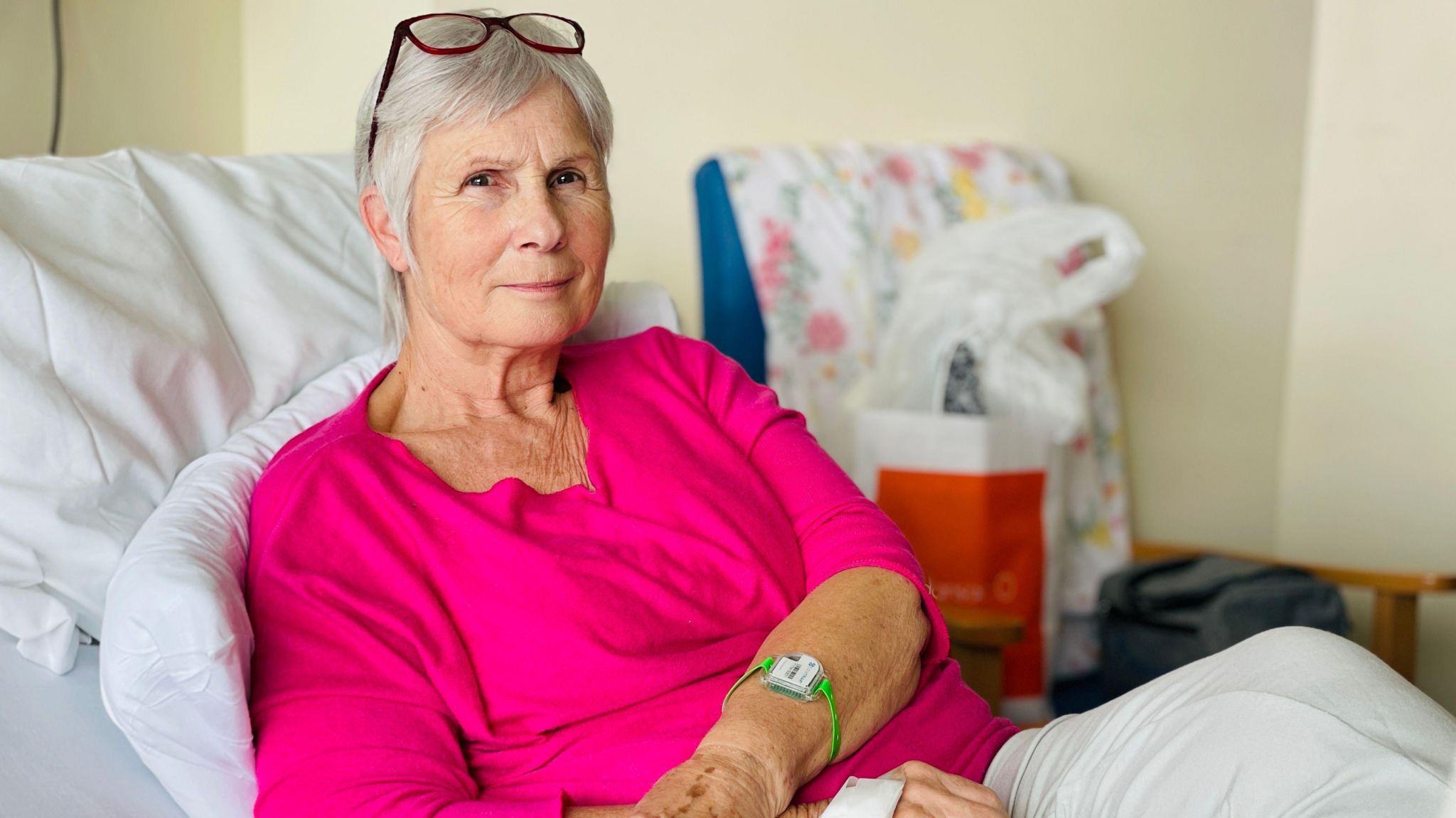Kent patient tracking system frees up nurses' time

Christine Hayfield who has been in hospital for eight days says the tracking system is "a good idea"
- Published
A new electronic bed management system introduced at the Medway Maritime Hospital in Gillingham has freed up thousands of hours of nurses time to care for patients, the Medway NHS Foundation Trust says.
The system works by giving each patient an electronic wristband when they are admitted to hospital.
When a patient is discharged the digital wristband will automatically update the system.
The system system from TeleTracking UK can alert a team in real‐time that the bed needs cleaning as soon as a patient has been discharged - a job previously done by nursing staff.
Christine Hayfield, who has been wearing the wristband during her stay in hospital, said: "First of all I thought what's it for? Is it spying on me?
"I think it's a good idea if the beds are available they need to be filled."
The trust says this has "reduced bed turnaround times (from a patient leaving a bed to the next patient being admitted in to bed) from over 4 hours to 2 hrs 20 min."
A trust spokesperson said since the system went live in October 2023 it had saved "161 days of 'wasted' bed time - where a clean empty bed didn’t have a patient in it".
"This new way of working has released 1,500 hours a month back to clinical staff so they can care for patients."
Matron, Charlotte Flannery holds a patient's teletracking wristband
Matron for surgical services, Charlotte Flannery, says it is not a GPS tracker that monitors a patients movements.
"We attach this to you and it allows us to see that you are occupying a bed.
"When you go home we drop (it) in a box and then a bed cleaning team comes and cleans that bed ready for the next patient."
The hospital's Care Coordination centre monitors the progress of patients through the hospital from admission to discharge
Prior to introducing the system the clinical site team would visit each ward to find out how many discharges there were going to be that day. They could then work out how many beds were available, before being able to allocate beds to new patients.
The trust's chief operating officer, Nick Sinclair, said: "It helps us manage our beds in a more efficient way so that we have our beds available for patients when they need access to care as quickly as we possibly can."
The BBC has heard from staff who had concerns about the system.
In response, Mr Sinclair said he absolutely recognised "that what we have done has completely changed the way the hospital operates".
He added: "We are working with our staff as much as we possibly can to improve the system as we move on."
Follow BBC Sussex on Facebook, external, on X, external, and on Instagram, external. Send your story ideas to southeasttoday@bbc.co.uk , external or WhatsApp us on 08081 002250.